- Home
- Philip Pullman
Lyra's Oxford
Lyra's Oxford Read online
LYRA'S OXFORD
His Dark Materials by Philip Pullman:
NORTHERN LIGHTS
THE SUBTLE KNIFE
THE AMBER SPYGLASS
LYRA'S OXFORD
A DAVID FICKLING BOOK
0385 606990
Published in Great Britain by David Fickling Books,
a division of Random House Children's Books
This edition published 2003
1 3 5 7 9 10 8 6 4 2
Copyright (c) Philip Pullman 2003
Illustrations copyright (c) John Lawrence 2003
Design copyright (c) Trickett & Webb Limited 2003
The right of Philip Pullman to be identified as the author of this work has been asserted in accordance with the Copyright, Designs and Patents Act 1988
All rights reserved. No part of this publication may be reproduced, stored in a retrieval system, or transmitted in any form or by any means, electronic, mechanical, photocopying, recording or otherwise, without the prior permission of the publishers.
Papers used by Random House Children's Books are natural, recyclable products made from wood grown in sustainable forests. The manufacturing processes conform to the environmental regulations of the country of origin.
Set in llpt New Baskerville
DAVID FICKLING BOOKS
31 Beaumont Street, Oxford, OX1 2NP
A division of RANDOM HOUSE CHILDREN'S BOOKS
61-63 Uxbridge Road, London W5 5SA
RANDOM HOUSE AUSTRALIA (PTY) LTD
20 Alfred Street, Milsons Point, Sydney,
New South Wales 2061, Australia
RANDOM HOUSE NEW ZEALAND LTD
18 Poland Road, Glenfield, Auckland 10, New Zealand
RANDOM HOUSE (PTY) LTD
Endulini, 5A Jubilee Road, Parktown 2193, South Africa
THE RANDOM HOUSE GROUP Limited Reg. No. 954009
www.kidsatrandomhouse.co.uk
A CIP catalogue record for this book is available from the British Library.
Printed and bound in Germany
by GGP Media
"... Oxford, where the real and the unreal jostle in the streets; where North Parade is in the south and South Parade is in the north, where Paradise is lost under a pumping station;1 where the river mists have a solvent and vivifying effect on the stone of the ancient buildings, so that the gargoyles of Magdalen College climb down at night and fight with those from Wykeham, or fish under the bridges, or simply change their expressions overnight; Oxford, where windows open into other worlds ..."
Oscar Baedecker, The Coasts of Bohemia
1 The old houses of Paradise Square were demolished in order to make an office block, in fact, not a pumping station. But Baedecker, for all his wayward charm, is a notoriously unreliable guide.
THIS BOOK contains a story and several other things. The other things might be connected with the story, or they might not; they might be connected to stories that haven't appeared yet. It's not easy to tell.
It's easy to imagine how they might have turned up, though. The world is full of things like that: old postcards, theater programs, leaflets about bomb-proofing your cellar, greeting cards, photograph albums, holiday brochures, instruction booklets for machine tools, maps, catalogs, railway timetables, menu cards from long-gone cruise liners--all kinds of things that once served a real and useful purpose, but have now become cut adrift from the things and the people they relate to.
They might have come from anywhere. They might have come from other worlds. That scribbled-on map, that publisher's catalog--they might have been put down absentmindedly in another universe, and been blown by a chance wind through an open window, to find themselves after many adventures on a market stall in our world.
All these tattered old bits and pieces have a history and a meaning. A group of them together can seem like the traces left by an ionizing particle in a bubble chamber: they draw the line of a path taken by something too mysterious to see. That path is a story, of course. What scientists do when they look at the line of bubbles on the screen is work out the story of the particle that made them: what sort of particle it must have been, and what caused it to move in that way, and how long it was likely to continue.
Dr. Mary Malone would have been familiar with that sort of story in the course of her search for dark matter. But it might not have occurred to her, for example, when she sent a postcard to an old friend shortly after arriving in Oxford for the first time, that that card itself would trace part of a story that hadn't yet happened when she wrote it. Perhaps some particles move backward in time; perhaps the future affects the past in some way we don't understand; or perhaps the universe is simply more aware than we are. There are many things we haven't yet learned how to read.
The story in this book is partly about that very process.
Contents
Cover
Other Books by This Author
Title Page
Copyright
Lyra and the Birds
Lyra and the Birds
LYRA didn't often climb out of her bedroom window these days. She had a better way onto the roof of Jordan College: the Porter had given her a key that let her onto the roof of the Lodge Tower. He'd let her have it because he was too old to climb the steps and check the stonework and the lead, as was his duty four times a year; so she made a full report to him, and he passed it to the Bursar, and in exchange she was able to get out onto the roof whenever she wanted.
When she lay down on the lead, she was invisible from everywhere except the sky. A little parapet ran all the way around the square roof, and Pantalaimon often draped his pine-marten form over the mock battlements on the corner facing south, and dozed while Lyra sat below with her back against the sun-drenched stone, studying the books she'd brought up with her. Sometimes they'd stop and watch the storks that nested on St. Michael's Tower, just across Turl Street. Lyra had a plan to tempt them over to Jordan, and she'd even dragged several planks of wood up to the roof and laboriously nailed them together to make a platform, just as they'd done at St. Michael's; but it hadn't worked. The storks were loyal to St. Michael's, and that was that.
"They wouldn't stay for long if we kept on coming here, anyway," said Pantalaimon.
"We could tame them. I bet we could. What do they eat?"
"Fish," he guessed. "Frogs."
He was lying on top of the stone parapet, lazily grooming his red-gold fur. Lyra stood up to lean on the stone beside him, her limbs full of warmth, and gazed out toward the southeast, where a dusty dark-green line of trees rose above the spires and rooftops in the early evening air.
She was waiting for the starlings. That year an extraordinary number of them had come to roost in the Botanic Garden, and every evening they would rise out of the trees like smoke, and swirl and swoop and dart through the skies above the city in their thousands.
"Millions," Pan said.
"Maybe, easily. I don't know who could ever count them.... There they are!"
They didn't seem like individual birds, or even individual dots of black against the blue; it was the flock itself that was the individual. It was like a single piece of cloth, cut in a very complicated way that let it swing through itself and double over and stretch and fold in three dimensions without ever tangling, turning itself inside out and elegantly waving and crossing through and falling and rising and falling again.
"If it was saying something ...," said Lyra.
"Like signaling."
"No one would know, though. No one could ever understand what it meant."
"Maybe it means nothing. It just is."
"Everything means something," Lyra said severely. "We just have to find out how to read it."
Pantalaimon leapt across a gap in the parapet to the stone
in the corner, and stood on his hind legs, balancing with his tail and gazing more intently at the vast swirling flock over the far side of the city.
"What does that mean, then?" he said.
She knew exactly what he was referring to. She was watching it too. Something was jarring or snagging at the smokelike, flaglike, ceaseless motion of the starlings, as if that miraculous multidimensional cloth had found itself unable to get rid of a knot.
"They're attacking something," Lyra said, shading her eyes.
And coming closer. Lyra could hear them now, too: a high-pitched angry mindless shriek. The bird at the center of the swirling anger was darting to right and left, now speeding upward, now dropping almost to the rooftops, and when it was no closer than the spire of the University Church, and before they could even see what kind of bird it was, Lyra and Pan found themselves shaking with surprise. For it wasn't a bird, although it was bird-shaped; it was a daemon. A witch's daemon.
"Has anyone else seen it? Is anyone looking?" said Lyra.
Pan's black eyes swept every rooftop, every window in sight, while Lyra leaned out and looked up and down the street on one side and then darted to the other three sides to look into Jordan's front quadrangle and along the roof as well. The citizens of Oxford were going about their daily business, and a noise of birds in the sky wasn't interesting enough to disturb them. Just as well: because a daemon was instantly recognizable as what he was, and to see one without his human would have caused a sensation, if not an outcry of fear and horror.
"Oh, this way, this way!" Lyra said urgently, unwilling to shout, but jumping up and waving both arms; and Pan too was trying to attract the daemon's attention, leaping from stone to stone, flowing across the gaps and spinning around to leap back again.
The birds were closer now, and Lyra could see the daemon clearly: a dark bird about the size of a thrush, but with long arched wings and a forked tail. Whatever he'd done to anger the starlings, they were possessed by fear and rage, swooping, stabbing, tearing, trying to batter him out of the air.
"This way! Here, here!" Pan cried, and Lyra flung open the trapdoor to give the daemon a way of escape.
The noise, now that the starlings were nearly overhead, was deafening, and Lyra thought that people below must be looking up to see this war in the sky. And there were so many birds, as thick as flakes in a blizzard of black snow, that Lyra, her arm across her head, lost sight of the daemon among them.
But Pan had him. As the daemon-bird dived low toward the tower, Pan stood up on his hind legs, and then leapt up to gather the daemon in his paws and roll with him over and over toward the trapdoor, and they fell through clumsily as Lyra struck out with her fists to left and right and then tumbled through after the two daemons, dragging the trapdoor shut behind her.
She crouched on the steps just beneath it, listening to the shrieks and screams outside rapidly lose their urgency. With their provocation out of sight, the starlings soon forgot that they were provoked.
"What now?" whispered Pan, just below her.
These wooden steps led up from a narrow landing, and were closed by a door at the bottom of the flight. Another door on the landing led to the rooms of young Dr. Polstead, who was one of the few Scholars capable of climbing all the way up the tower several times a day. Being young, he had all his faculties in working order, and Lyra was sure he must have heard her tumble through and bang the trapdoor shut.
She put her finger to her lips. Pantalaimon, staring up in the near-dark, saw and turned his head to listen. There was a faint patch of a lighter color on the step next to him, and as Lyra's eyes adjusted she made out the shape of the daemon and the V-shaped patch of white feathers on his rump.
Silence. Lyra whispered down:
"Sir, we must keep you hidden. I have a canvas bag--if that would be all right--I could carry you to our room...."
"Yes," came the answering whisper from below.
Lyra pressed her ear to the trapdoor, and, hearing no more tumult, opened it carefully and then darted out to retrieve her bag and the books she'd been studying. The starlings had left evidence of their last meals on the covers of both books, and Lyra made a face as she thought about explaining it to the Librarian of St. Sophia's. She picked the books up gingerly and took them and the bag down through the trapdoor, to hear Pan whispering, "Shhh ..."
Voices beyond the lower door: two men leaving Dr. Polstead's room. Visitors--the university term hadn't begun, and he wouldn't be holding tutorials yet.
Lyra held open her bag. The strange daemon hesitated. He was a witch's daemon, and he was used to the wide Arctic skies. The narrow canvas darkness was frightening to him.
"Sir, it will only be for five minutes," she whispered. "We can't let anyone else see you."
"You are Lyra Silvertongue?"
"Yes, I am."
"Very well," he said, and delicately stepped into the bag that Lyra held open for him.
She picked it up carefully, waiting for the visitors' voices to recede down the stairs. When they'd gone, she stepped over Pan and opened the door quietly. Pan flowed through like dark water, and Lyra set the bag gently over her shoulder and followed, shutting the door behind her.
"Lyra? What's going on?"
The voice from the doorway behind her made her heart leap. Pan, a step ahead, hissed quietly.
"Dr. Polstead," she said, turning. "Did you hear the birds?"
"Was that what it was? I heard a lot of banging," he said.
He was stout, ginger-haired, affable; more inclined to be friendly to Lyra than she was to return the feeling. But she was always polite.
"I don't know what was the matter with them. Starlings, from over Magdalen way. They were all going mad. Look!"
She held out her bespattered books. He made a face.
"Better get those cleaned," he said.
"Well, yes," she said, "that's where I was going."
His daemon was a cat, as ginger as he was. She purred a greeting from the doorway, and Pan acknowledged her courteously and moved away.
Lyra lived at St. Sophia's in term time, but her room in the back quad at Jordan was always there when she wanted to use it. The clock was striking half-past six as she hurried there with her living burden--who was much lighter than her own daemon, as she intended to tell Pantalaimon later.
As soon as the door had closed behind them, she set down the bag on her desk and let the daemon out. He was frightened, and not only of the dark.
"I had to keep you out of sight--" she began.
"I understand. Lyra Silvertongue, you must guide me to a house in this city--I can't find the house, I don't know cities--"
"Stop," she said, "slow down, wait. What is your name, and your witch's name?"
"I am Ragi. She is Yelena Pazhets. She sent me--I must find a man who--"
"Please," Lyra said, "please don't speak so loudly. I'm safe here--this is my home--but people are curious--if they hear another daemon's voice in here, it would be hard to explain, and then you would be in danger."
The daemon fluttered anxiously to the windowsill, and then to the back of Lyra's chair, and then back to the table.
"Yes," he said. "I must go to a man in this city. Your name is known to us--we heard that you could help. I am frightened this far south, and under a roof."
"If I can help, I will. Who is this man? Do you know where he lives?"
"His name is Sebastian Makepeace. He lives in Jericho."
"Just Jericho? That's all the address you have?"
The daemon looked bewildered. Lyra didn't press him; to a witch of the far north, a settlement of more than four or five families was almost unimaginably vast and crowded.
"All right," she said, "I'll try and find him. But--"
"Now! It's urgent!"
"No. Not now. Tonight, after dark. Can you stay here comfortably? Or would you rather come with us to ... to my school, which is where I should be now?"
He flew from the table to the open window and perched
on the sill for a moment, and then flew out altogether and circled in the air above the quadrangle. Pantalaimon leapt onto the windowsill to watch for him while Lyra searched through the untidy bookshelves for a map of the city.
"Has he gone?" she said over her shoulder.
"He's coming back."
The daemon flew in and beat his wings inward to slow down and perch on the back of the chair.
"Danger outside and suffocation within," he said unhappily.
Lyra found the map and turned around.
"Sir," she said, "who was it who told you my name?"
"A witch from Lake Enara. She said Serafina Pekkala's clan had a good friend in Oxford. Our clan is allied to hers through the birch-oath."
"And where is Yelena Pazhets, your witch?"
"She's lying sick beyond the Urals, in our homeland."
Lyra could feel Pan teeming with questions, and she half-closed her eyes in a flicker that she knew he'd see: Don't. Wait. Hush.
"It would be too painful for you to hide in my bag till nightfall," she said, "so this is what we'll do. I'll leave this window open for you and you can shelter in here, and fly out whenever you need to. I shall come back at ... Can you read the time in our fashion?"
"Yes. We learned at Trollesund."
"You can see the clock over the hall from here. At half-past eight I shall be in the street outside the tower where you found us. Fly down and meet us there, and we'll take you to Mr. Makepeace."
"Yes--yes. Thank you."
They shut the door and hurried down. What she'd said a minute before was true: she should be in school, for dinner at seven was compulsory for all the pupils, and it was already twenty minutes to.
But on the way through the lodge she was struck by a thought, and said to the Porter:
"Mr. Shuter, have you got an Oxford directory?"
"Trade, or residential, Miss Lyra?"
"I don't know. Both. One that covers Jericho."
"What are you looking up?" said the old man, handing her a couple of battered reference books.
The Porter was a friend; he wasn't being nosy.
"Someone called Makepeace," she said, turning to the Jericho section of the residential one. "Is there a firm or a shop called Makepeace that you know of?"
"Not to my knowledge," he said.

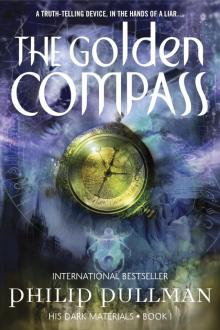 The Golden Compass
The Golden Compass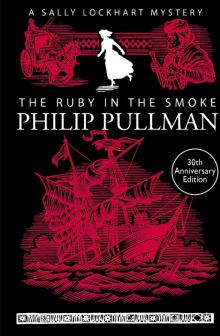 The Ruby in the Smoke
The Ruby in the Smoke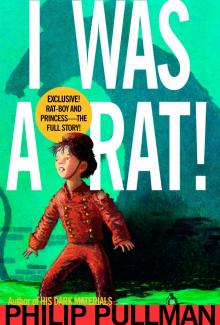 I Was a Rat!
I Was a Rat!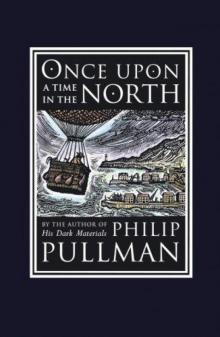 Once Upon a Time in the North
Once Upon a Time in the North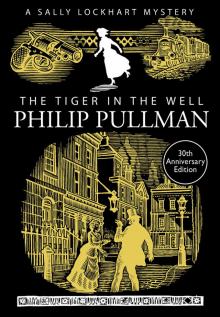 The Tiger in the Well
The Tiger in the Well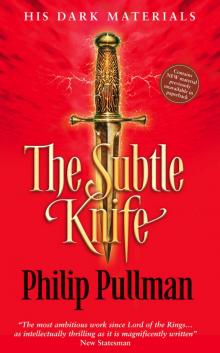 The Subtle Knife
The Subtle Knife The Butterfly Tattoo
The Butterfly Tattoo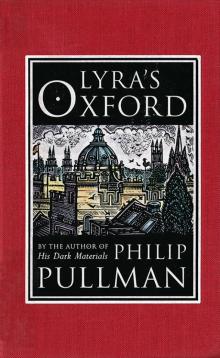 Lyra's Oxford
Lyra's Oxford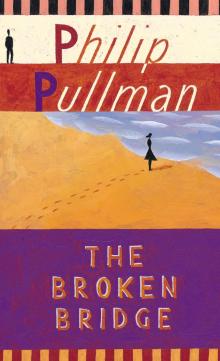 The Broken Bridge
The Broken Bridge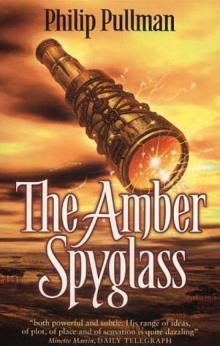 The Amber Spyglass
The Amber Spyglass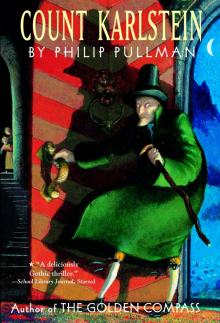 Count Karlstein
Count Karlstein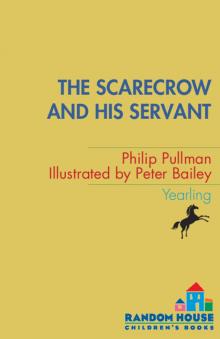 The Scarecrow and His Servant
The Scarecrow and His Servant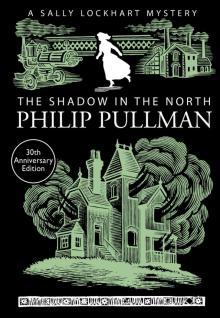 The Shadow in the North
The Shadow in the North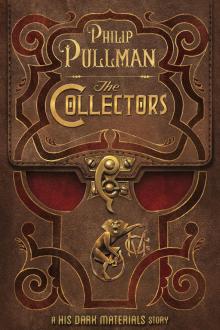 The Collectors
The Collectors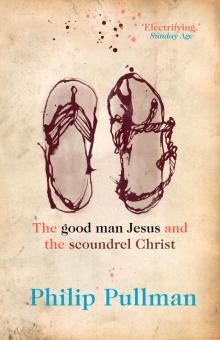 The Good Man Jesus and the Scoundrel Christ
The Good Man Jesus and the Scoundrel Christ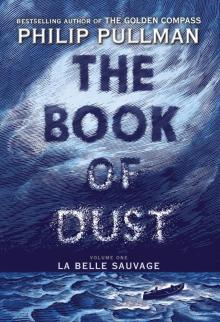 La Belle Sauvage
La Belle Sauvage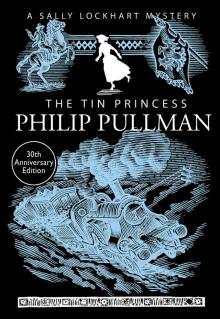 The Tin Princess
The Tin Princess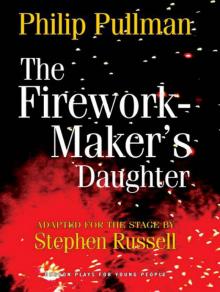 The Firework-Maker's Daughter
The Firework-Maker's Daughter The Book of Dust: The Secret Commonwealth (Book of Dust, Volume 2)
The Book of Dust: The Secret Commonwealth (Book of Dust, Volume 2)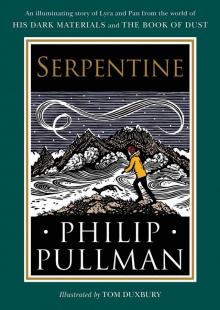 Serpentine
Serpentine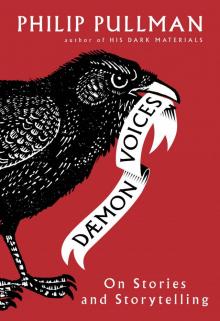 Daemon Voices
Daemon Voices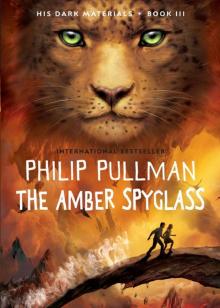 The Amber Spyglass: His Dark Materials
The Amber Spyglass: His Dark Materials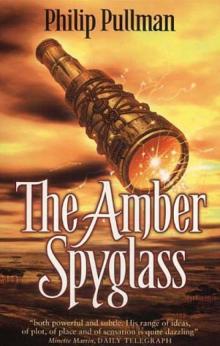 The Amber Spyglass hdm-3
The Amber Spyglass hdm-3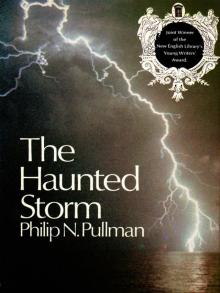 The Haunted Storm
The Haunted Storm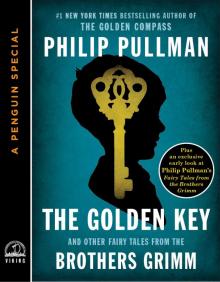 The Golden Key
The Golden Key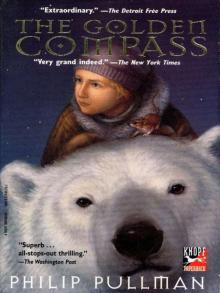 His Dark Materials 01 - The Golden Compass
His Dark Materials 01 - The Golden Compass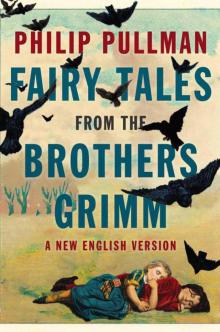 Fairy Tales from the Brothers Grimm: A New English Version
Fairy Tales from the Brothers Grimm: A New English Version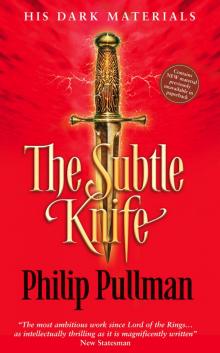 His Dark Materials 02 - The Subtle Knife
His Dark Materials 02 - The Subtle Knife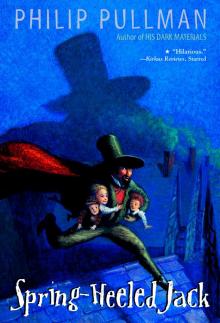 Spring-Heeled Jack
Spring-Heeled Jack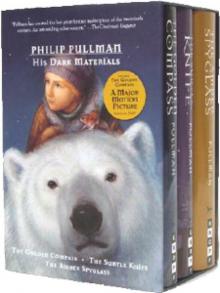 The Golden Compass hdm-1
The Golden Compass hdm-1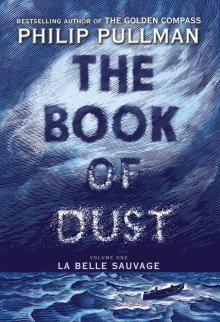 The Book of Dust, Volume 1
The Book of Dust, Volume 1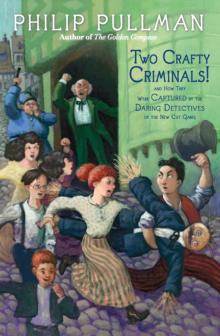 Two Crafty Criminals!
Two Crafty Criminals!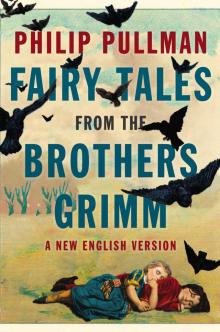 Fairy Tales from the Brothers Grimm
Fairy Tales from the Brothers Grimm The Subtle Knife: His Dark Materials
The Subtle Knife: His Dark Materials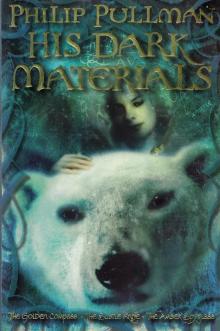 His Dark Materials Omnibus
His Dark Materials Omnibus The Golden Compass: His Dark Materials
The Golden Compass: His Dark Materials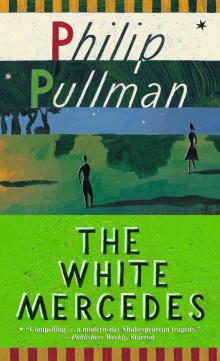 The White Mercedes
The White Mercedes